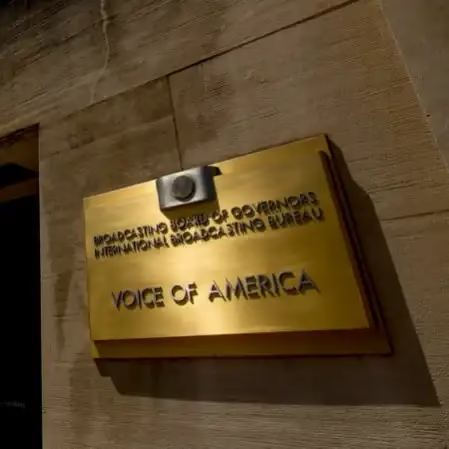Recent developments have sent shockwaves through the global media landscape as Voice of America (VOA) undergoes significant operational changes. On March 15, 2025, President Donald Trump signed an executive order that dramatically reduces the operations of the U.S. Agency for Global Media (USAGM), the umbrella organization that oversees VOA and other international broadcasting services.
What Happened?
The executive order has led to over 1,300 VOA employees being placed on administrative leave. This decisive action has effectively halted VOA’s broadcasting activities, which have long been a critical source of unbiased news in 48 languages, reaching an estimated 360 million people weekly. The same order also impacts other key USAGM entities, including Radio Free Europe/Radio Liberty and Radio Free Asia, with funding for these organizations being completely terminated.
The Rationale Behind the Decision
According to the administration, the move is a necessary measure to reduce federal spending and eliminate what is viewed as state-sponsored bias in media reporting. Officials argue that by scaling back operations, the government can better manage costs while addressing concerns about media impartiality. However, critics are quick to point out that such steps may undermine the United States’ longstanding commitment to promoting free and independent journalism worldwide.
Global Implications and Concerns
The ramifications of these funding cuts extend far beyond the U.S. borders. Press freedom advocates warn that sidelining established news outlets like VOA could embolden authoritarian regimes around the world. These critics argue that silencing voices committed to delivering unbiased news may leave regions already lacking in free press without a critical source of reliable information. In effect, this policy shift could diminish the United States’ ability to support democratic values globally.
Historical Context
VOA was originally established during World War II with the mission of countering Nazi propaganda. Over the decades, it has grown into a robust institution that provides vital news services to millions across the globe. The current upheaval, therefore, not only signals an internal restructuring but also marks a significant turning point in the broader context of global media freedom.
What’s Next?
As this policy unfolds, questions remain about the future of U.S.-funded international media. Observers are closely monitoring the potential long-term effects on both the quality of global news dissemination and the U.S. role in advocating for democratic ideals. With press freedom now at the heart of the debate, the coming months will likely see increased scrutiny from both domestic and international watchdogs.
Conclusion
The recent executive order represents one of the most dramatic shifts in U.S. international broadcasting in recent history. While the administration cites fiscal prudence and media bias as driving factors, the resulting impact on global press freedom raises serious concerns. As VOA and its sister agencies grapple with these changes, the world watches closely, questioning whether the benefits of cost-saving measures outweigh the risks to independent journalism and democratic values.


Very good
too bad
too bad
okay, this is serious
my bad
too bad
this is a disaster
Thanks for sharing this